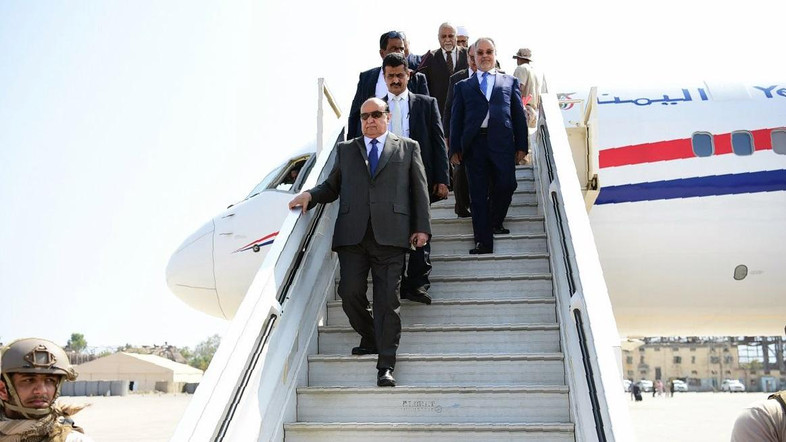Aden – Yemen President Abdrabbuh Mansur Hadi said that the insurgency led by Iran-aligned Houthi militias and armed loyalists backing ousted president Ali Abdullah Saleh is actively blocking the agenda on political transition.
President Hadi urged international forces to help out Yemen, especially that forces belonging to the internationally-recognized government led by him have regained control over 85 percent of the country.
“Yemen today faces one of the most tragic humanitarian disasters—the outbreak of endemics and famine, frighteningly receding economic and social indicatives, spiking crime and terrorism rates, all of which urges collaboration for recovery,” Hadi said in his speech at the Indian Ocean Rim Association (IORA) summit meeting in Jakarta, Indonesia.
Hadi stressed that cooperation is key to “go beyond humanitarian relief towards reconstruction of Yemeni provinces, and aiding the government’s efforts on reviving the economy in areas under its control, which makes up for 85 percent of Yemen’s overall territory.”
“My country is suffering from a deteriorating humanitarian situation because of this coup against legitimacy,” he said.
Coup militias had infringed on the Yemeni people’s desire for peaceful change in their political system that exercised authoritarian approaches for over three decades, Hadi added.
Addressing global efforts in Yemen, Hadi underscored the strong partnership established between the legitimate government and the international community— the pinnacle of international efforts in Yemen is sampled in both the Gulf initiative, the sponsoring of a comprehensive national dialogue that tackled challenges that faced the Yemeni nation for the last half century.
Yemen’s national dialogue yielded a clear roadmap promoting co-existence—most importantly broaching a positive national outlook in which it overcomes the crisis.
As a part of the reconciliation efforts, the National Dialogue Conference (NDC) held in Sana’a, Yemen from 2013-2014 had drafted a new federal constitution. Dialogue members had agreed that Yemen would be transformed into a 6-region federal system.
“The bloody coup staged by Houthi militias and their allies, had seriously impeded political transition, leaving Yemen in a downward spiral into civil war that destroyed -and still does- its social fabric,” Hadi said.
“Despite the insurgency constantly losing ground- -their militias control no more than 15 percent of Yemeni territory– there are those who continue to back coup militiamen against legitimacy, and extending the suffering of Yemenis, fueling the putschist-led war.”
President Hadi also critiqued Iran’s persistent arming of coup militants, saying that it only “augments the suffering of the Yemeni people, and violates international law, the United Nations Charter and the basic principles upheld by the IROA.”
“Whoever wishes to support Yemen and end the war and suffering, ought to extend medicine and food instead of weapons,” he noted.
